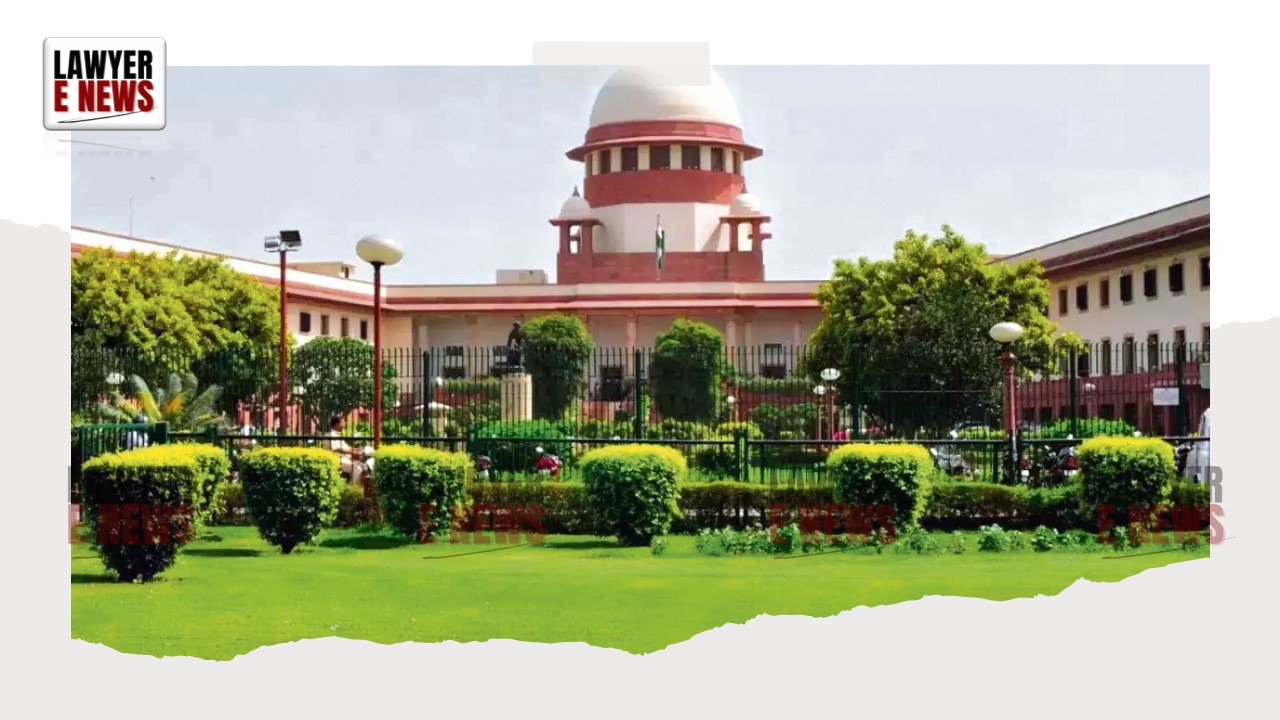-
by sayum
17 February 2026 8:32 AM



"Mere Non-Payment or Breach of Contract Does Not Constitute Cheating" — In a major relief to corporate professionals, the Supreme Court of India quashed criminal proceedings initiated against officers of a construction company, holding that the criminal justice system must not be misused to settle business disputes. Supreme Court ruled that where the allegations arise purely from commercial transactions without any dishonest intention from inception, the invocation of criminal law constitutes an abuse of legal process.
The case arose out of subcontract work awarded under a larger construction project of the National Building Construction Corporation Limited (NBCCL). Disputes later arose regarding non-payment of dues and alleged non-disclosure of a restrictive covenant prohibiting subletting without prior permission. Instead of pursuing purely civil remedies, the subcontractor initiated criminal proceedings against company officials, invoking serious charges of cheating and forgery under Sections 406, 420, 467, 468, and 471 IPC.
While the High Court had quashed proceedings against the Deputy General Manager of NBCCL, it refused similar relief to the officers of the private contractor company, prompting them to approach the Supreme Court.
In a detailed analysis, the Supreme Court drew a sharp line between civil wrongs and criminal offences. The Court observed: "It is a settled principle that a mere breach of contract does not amount to an offence of cheating unless fraudulent or dishonest intention is shown to have existed from the beginning of the transaction."
The Court warned against permitting criminal proceedings where the allegations, taken at face value, disclose only civil liability. It emphasized that: "The criminal process cannot be used as a weapon of harassment or for seeking private vengeance, particularly in matters arising out of commercial contracts."
Highlighting the potential chilling effect on legitimate business activities, the Court stated:
"If every breach of a commercial agreement were permitted to trigger criminal law, no corporate professional would be safe from the threat of arrest and prosecution."
The Bench also noted that the complainant had already initiated arbitration proceedings to recover money and that civil forums were the appropriate remedy. Citing Indian Oil Corporation v. NEPC (India) Ltd., the Court reiterated that: "Criminal law must not be allowed to be used for settling scores or pressurizing parties to settle civil claims."
The Supreme Court held that even if all allegations were accepted on their face, no criminal offence was made out against the appellants. The mere fact that prior permission for subcontracting had not been obtained did not, by itself, constitute cheating or forgery.
Recognizing the danger of "civil disputes being given a cloak of criminality," the Court invoked its inherent powers under Section 482 CrPC to quash the FIR and all consequential proceedings. It also observed that the complainant’s right to pursue civil remedies, including arbitration, remained unaffected.
The Court thus firmly declared: "To allow such criminal proceedings to continue would amount to inflicting injustice rather than upholding the law."
Through this judgment, the Supreme Court has once again fortified the protective shield around corporate officers against wrongful criminal prosecution in business matters. By emphasizing that the criminal courts are not debt recovery forums, and that mere disputes over contract terms must not be criminalized, the Court has provided a vital safeguard for the business community.
The Court’s words resonate strongly:
"Law is meant to protect the innocent and punish the guilty, not to serve as a tool of oppression or commercial blackmail."
This decision will stand as a beacon against misuse of criminal law to harass professionals engaged in legitimate commercial dealings.
Date of Decision: 28 April 2025
